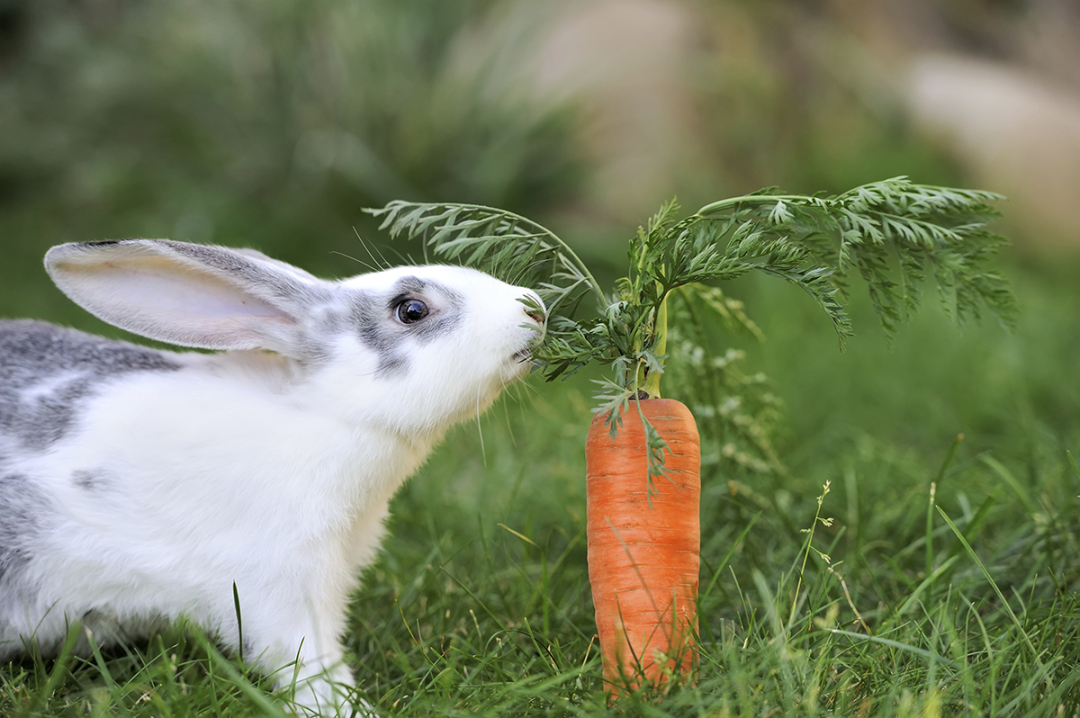Are Carrots Bad For Rabbits?
Carrots are often considered a staple food for rabbits, and while they can be a healthy addition to their diet, it’s important to understand the potential risks and limitations associated with feeding carrots to rabbits. In this article, we will explore whether carrots are bad for rabbits and provide some guidelines on how to incorporate them into a rabbit’s diet.

The Nutritional Value of Carrots for Rabbits
Carrots are rich in essential nutrients that can benefit rabbits when consumed in moderation. They are a great source of vitamin A, which is crucial for maintaining good vision, promoting healthy skin, and supporting the immune system. Carrots also contain dietary fiber, which aids in digestion and helps prevent gastrointestinal issues in rabbits.
Potential Risks of Feeding Carrots to Rabbits
While carrots can provide nutritional benefits, they should be fed to rabbits in moderation due to some potential risks:
- Sugar Content: Carrots are relatively high in sugar compared to other vegetables. Excessive consumption of sugary foods can lead to obesity and dental problems in rabbits. It is important to balance the intake of carrots with other low-sugar vegetables in a rabbit’s diet.
- Diarrhea: Rabbits have delicate digestive systems, and sudden changes in their diet, including the introduction of large amounts of carrots, can cause diarrhea. This can lead to dehydration and other health issues. It is crucial to introduce carrots gradually and in small quantities to avoid digestive disturbances.
- Root Vegetables: Carrots are root vegetables, and while they can be a healthy addition to a rabbit’s diet, they should not be the sole source of vegetables. Rabbits need a varied diet that includes leafy greens, hay, and a limited amount of root vegetables like carrots.
Guidelines for Feeding Carrots to Rabbits
When feeding carrots to rabbits, it is essential to follow these guidelines to ensure their health and well-being:
- Offer carrots as occasional treats rather than a daily staple in a rabbit’s diet.
- Introduce carrots gradually by starting with small pieces or shavings and increasing the amount over time.
- Wash carrots thoroughly to remove any pesticides or dirt that may be present on the skin.
- Remove any carrot tops or greens before feeding them to rabbits, as they are high in oxalic acid, which can be harmful in large quantities.
- Monitor your rabbit’s reaction to carrots. If you notice any signs of digestive upset or changes in behavior, reduce or eliminate carrot consumption.
It’s essential to remember that a rabbit’s diet should primarily consist of hay, fresh water, and leafy greens. Carrots should be given as a supplement or treat rather than a main source of nutrition.
FAQs about Carrots and Rabbits
1. Can rabbits eat carrot tops?
Carrot tops should be removed before feeding them to rabbits. While they are not toxic, they contain high levels of oxalic acid, which can be harmful in large quantities and may contribute to the formation of kidney stones in rabbits.
2. How much carrot can I feed my rabbit?
Carrots should be fed in moderation. A good rule of thumb is to limit carrot intake to about one to two baby-sized carrots per day for an average-sized rabbit. It is crucial to balance their diet with other low-sugar vegetables and a variety of hay and leafy greens.
3. Can carrots cause obesity in rabbits?
While carrots themselves do not directly cause obesity in rabbits, they are relatively high in sugar content. Excessive consumption of sugary foods, including carrots, can contribute to weight gain and obesity in rabbits. It is important to prioritize a balanced diet and portion control.
4. Are there any alternatives to carrots for rabbits?
Yes, there are several vegetables that can be given to rabbits as alternatives or in addition to carrots. Some suitable options include dark leafy greens like kale, spinach, and romaine lettuce, as well as bell peppers, celery, and broccoli. It is important to introduce new vegetables gradually and observe your rabbit’s reaction.
While carrots can be a healthy addition to a rabbit’s diet, moderation and proper balance are key. By following the guidelines outlined in this article and considering the nutritional needs of your rabbit, you can ensure that carrots are a safe and enjoyable treat for your furry friend.
Related Articles…
Copyright Notice:
All images featured on this site are sourced from the internet, copyrights belong to respective owners. Should you own any image and require it to be removed, please contact us.